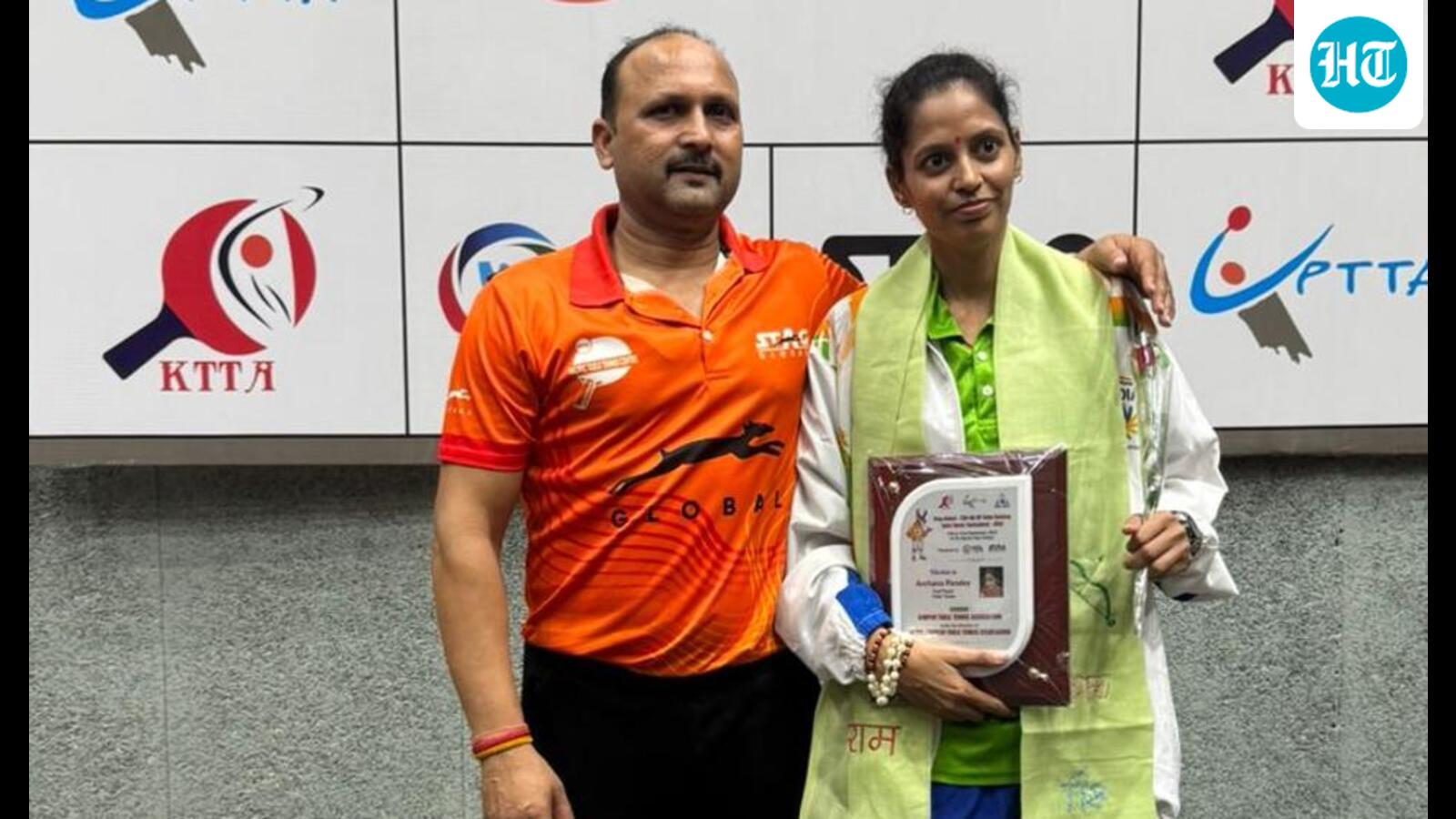Lifestyle
Hearing-Impaired Olympian Archana Pandey Seeks Support Ahead of Tokyo

Archana Pandey, a two-time hearing-impaired Olympian, is preparing for her third Deaf Olympics in Tokyo this November, facing significant challenges due to a lack of support from Uttar Pradesh’s sports policy. While the state has established funding for para athletes, deaf athletes like Archana remain unrecognized, leaving her without financial assistance or job security.
At the Pacific Table Tennis Centre in Lucknow, the sounds of ball striking paddle fill the air as Archana, 34, dedicates herself to rigorous training. She has previously represented India in the Deaf Olympics, finishing fifth in both Turkey and Brazil. With aspirations for a podium finish this year, Archana reflects on her journey. “I have won more than a dozen medals, but I still run my house with just the little I earn from coaching children,” she shared, highlighting her family’s dependency on her modest income.
Archana’s career began at Lucknow University, where she won her first college title in 2012. In subsequent years, she has accumulated an impressive record: one gold, five silver, and six bronze medals in national deaf championships. Despite her achievements, she feels a lack of recognition from the state. “Other states like Gujarat and Haryana support their deaf athletes with jobs and money. Here in UP, I get nothing. I only request our Chief Minister Yogi Adityanath to support me as he does other sportspersons,” she emphasized.
Her coach, Parag Agarwal, has been a pivotal figure in her training. “Her style caught my eye when I first saw her play. I knew she had the spark,” he remarked. Agarwal has provided some financial support during challenging times, particularly during the pandemic when Archana faced dire circumstances. “Her family had nothing to fall back on. I managed to provide her some financial support, but it’s not enough for a player who represents India,” he added.
Archana’s struggle is compounded by the fact that hearing impairment is not recognized as a disability category in the Paralympic Games. This exclusion means that she, unlike Paralympians, does not receive any institutional backing. “Paralympians from UP receive full support from the government. Deaf athletes deserve the same,” Agarwal stated, advocating for equal treatment of all athletes regardless of their disabilities.
As she trains for long hours, Archana remains focused on her goal. Each practice session serves as a reminder of the uncertain future that looms over her. “She survives on a modest income from my academy, but that is no way for a two-time Olympian to live,” Agarwal reiterated.
For Archana, the upcoming Deaf Olympics represents not just an athletic competition, but a chance to transform her life and that of her family. “My parents tell me a medal will change everything. I believe it too. That’s why I fight every day, despite everything,” she said, determination evident in her voice as she prepares to pick up her paddle once more.
The story of Archana Pandey sheds light on the broader issue of support for athletes with disabilities, particularly in regions where policies do not adequately address their needs. As she sets her sights on Tokyo, the call for recognition and support for hearing-impaired athletes continues to resonate.
-

 World5 months ago
World5 months agoSBI Announces QIP Floor Price at ₹811.05 Per Share
-

 Lifestyle5 months ago
Lifestyle5 months agoCept Unveils ₹3.1 Crore Urban Mobility Plan for Sustainable Growth
-

 Science4 months ago
Science4 months agoNew Blood Group Discovered in South Indian Woman at Rotary Centre
-

 World5 months ago
World5 months agoTorrential Rains Cause Flash Flooding in New York and New Jersey
-

 Top Stories5 months ago
Top Stories5 months agoKonkani Cultural Organisation to Host Pearl Jubilee in Abu Dhabi
-

 Sports4 months ago
Sports4 months agoBroad Advocates for Bowling Change Ahead of Final Test Against India
-

 Science5 months ago
Science5 months agoNothing Headphone 1 Review: A Bold Contender in Audio Design
-

 Top Stories5 months ago
Top Stories5 months agoAir India Crash Investigation Highlights Boeing Fuel Switch Concerns
-

 Business5 months ago
Business5 months agoIndian Stock Market Rebounds: Sensex and Nifty Rise After Four-Day Decline
-

 Sports4 months ago
Sports4 months agoCristian Totti Retires at 19: Pressure of Fame Takes Toll
-

 Politics5 months ago
Politics5 months agoAbandoned Doberman Finds New Home After Journey to Prague
-

 Top Stories5 months ago
Top Stories5 months agoPatna Bank Manager Abhishek Varun Found Dead in Well









